Xihao Xie
Temporal Graph Neural Network-Powered Paper Recommendation on Dynamic Citation Networks
Aug 27, 2024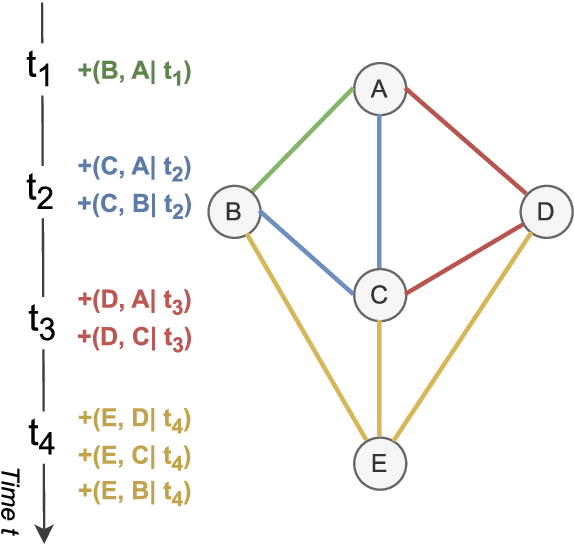
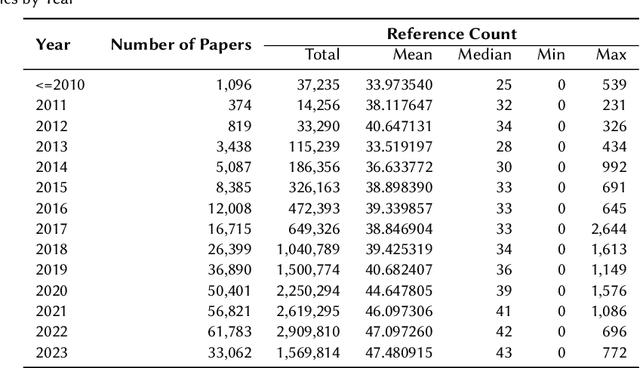
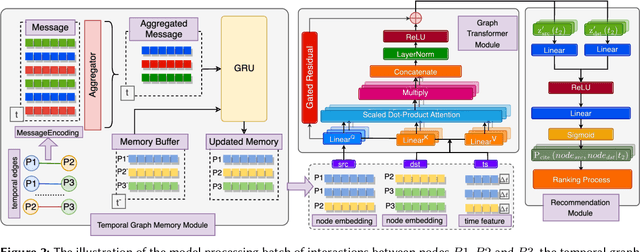
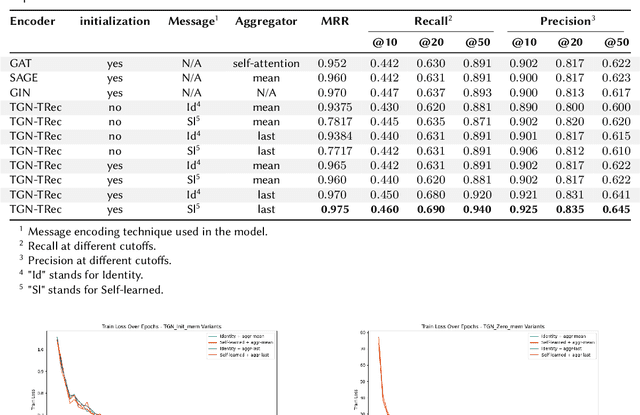
Abstract:Due to the rapid growth of scientific publications, identifying all related reference articles in the literature has become increasingly challenging yet highly demanding. Existing methods primarily assess candidate publications from a static perspective, focusing on the content of articles and their structural information, such as citation relationships. There is a lack of research regarding how to account for the evolving impact among papers on their embeddings. Toward this goal, this paper introduces a temporal dimension to paper recommendation strategies. The core idea is to continuously update a paper's embedding when new citation relationships appear, enhancing its relevance for future recommendations. Whenever a citation relationship is added to the literature upon the publication of a paper, the embeddings of the two related papers are updated through a Temporal Graph Neural Network (TGN). A learnable memory update module based on a Recurrent Neural Network (RNN) is utilized to study the evolution of the embedding of a paper in order to predict its reference impact in a future timestamp. Such a TGN-based model learns a pattern of how people's views of the paper may evolve, aiming to guide paper recommendations more precisely. Extensive experiments on an open citation network dataset, including 313,278 articles from https://paperswithcode.com/about PaperWithCode, have demonstrated the effectiveness of the proposed approach.
Learning Service Selection Decision Making Behaviors During Scientific Workflow Development
Mar 30, 2024



Abstract:Increasingly, more software services have been published onto the Internet, making it a big challenge to recommend services in the process of a scientific workflow composition. In this paper, a novel context-aware approach is proposed to recommending next services in a workflow development process, through learning service representation and service selection decision making behaviors from workflow provenance. Inspired by natural language sentence generation, the composition process of a scientific workflow is formalized as a step-wise procedure within the context of the goal of workflow, and the problem of next service recommendation is mapped to next word prediction. Historical service dependencies are first extracted from scientific workflow provenance to build a knowledge graph. Service sequences are then generated based on diverse composition path generation strategies. Afterwards, the generated corpus of composition paths are leveraged to study previous decision making strategies. Such a trained goal-oriented next service prediction model will be used to recommend top K candidate services during workflow composition process. Extensive experiments on a real-word repository have demonstrated the effectiveness of this approach.
Goal-Driven Context-Aware Next Service Recommendation for Mashup Composition
Oct 25, 2022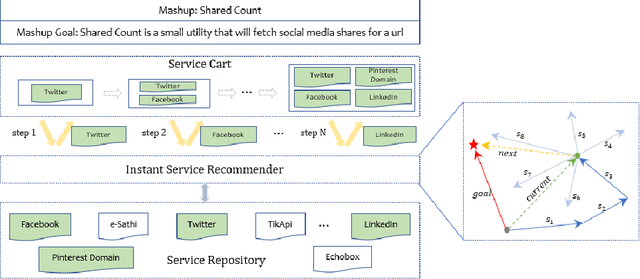

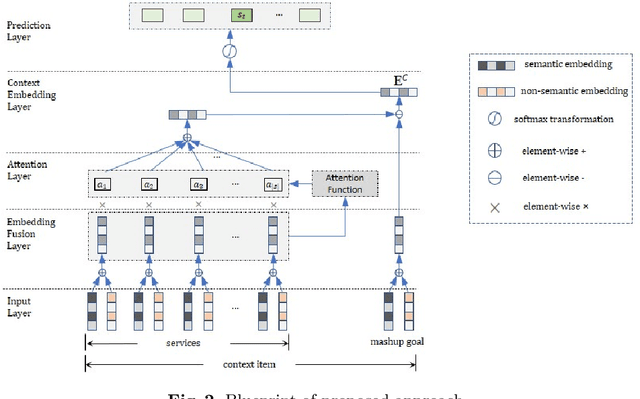
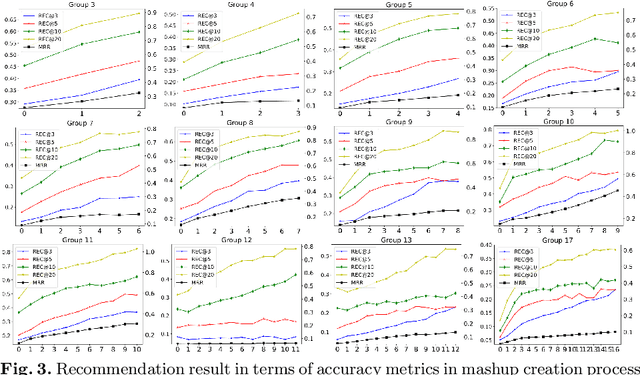
Abstract:As service-oriented architecture becoming one of the most prevalent techniques to rapidly deliver functionalities to customers, increasingly more reusable software components have been published online in forms of web services. To create a mashup, it gets not only time-consuming but also error-prone for developers to find suitable services from such a sea of services. Service discovery and recommendation has thus attracted significant momentum in both academia and industry. This paper proposes a novel incremental recommend-as-you-go approach to recommending next potential service based on the context of a mashup under construction, considering services that have been selected to the current step as well as its mashup goal. The core technique is an algorithm of learning the embedding of services, which learns their past goal-driven context-aware decision making behaviors in addition to their semantic descriptions and co-occurrence history. A goal exclusionary negative sampling mechanism tailored for mashup development is also developed to improve training performance. Extensive experiments on a real-world dataset demonstrate the effectiveness of our approach.
Learning Context-Aware Service Representation for Service Recommendation in Workflow Composition
May 24, 2022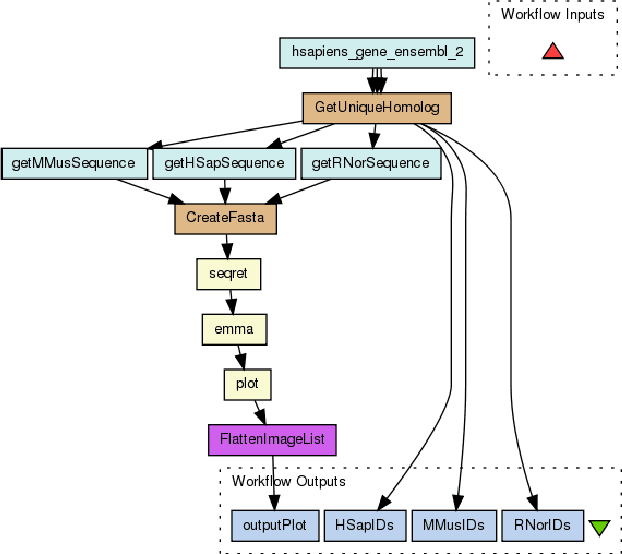
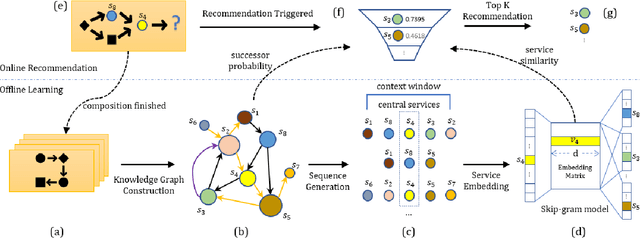


Abstract:As increasingly more software services have been published onto the Internet, it remains a significant challenge to recommend suitable services to facilitate scientific workflow composition. This paper proposes a novel NLP-inspired approach to recommending services throughout a workflow development process, based on incrementally learning latent service representation from workflow provenance. A workflow composition process is formalized as a step-wise, context-aware service generation procedure, which is mapped to next-word prediction in a natural language sentence. Historical service dependencies are extracted from workflow provenance to build and enrich a knowledge graph. Each path in the knowledge graph reflects a scenario in a data analytics experiment, which is analogous to a sentence in a conversation. All paths are thus formalized as composable service sequences and are mined, using various patterns, from the established knowledge graph to construct a corpus. Service embeddings are then learned by applying deep learning model from the NLP field. Extensive experiments on the real-world dataset demonstrate the effectiveness and efficiency of the approach.
 Add to Chrome
Add to Chrome Add to Firefox
Add to Firefox Add to Edge
Add to Edge